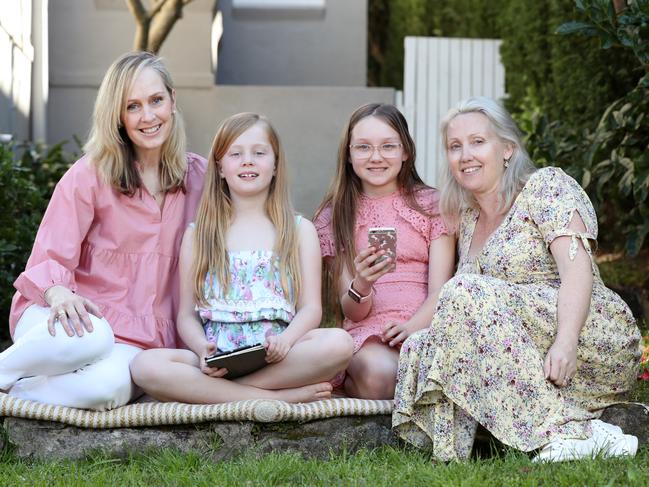Easy ways to stop kids becoming tech zombies
A concerning number of tweens and teens are struggling to detach themselves from tech devices during the pandemic, and the effects are worrying. But there are many things parents can do to reduce their child’s screen time.
SmartDaily
Don't miss out on the headlines from SmartDaily. Followed categories will be added to My News.
Parents are now wrestling with their own tech addicts, with the fallout from remote schooling and pandemic restrictions leaving young children, tweens and teens struggling to detach from devices.
Tech psychology expert Brad Marshall says he has seen a spike in his psychology clinic of kids whose parents dropped their guard during the shutdown and are now having trouble detaching.
“A lot of parents felt like they had their screen use under check and then they were asked to do online learning and it is hard for parents to monitor if their child is on Google classrooms or YouTube — particularly if they are working,” he says. “It wasn’t until schools started back that a lot of parents realised how far behind their kid was with their schoolwork — and how much more into their screens they were.”

Marshall says negotiating screen time with a child is the first step to restricting it, and to make sure there are different rules for different times.
“You want to avoid there being zero rules on weekends or holidays. There has to be some limits and it is twice as hard now because there are not things like the movies or other things you can send them to.”
Marshall suggests old-fashioned “play dates” — even for older kids, and encouraging smaller gatherings or sending children to the park.
Jill Sweatman is a neuroscience communicator and learning specialist and thinks screens are insidiously changing the way we live — and triggering biological changes.
“One of the biggest concerns from a learning perspective is so many of our children are passive consumers of other peoples’ creativity, not active creators in their own endeavours,” Sweatman says.
“We are seeing increased research that indicates with excessive use the brain changes and can be damaged. A little can become a lot, readily, so during COVID it is even more important to monitor device usage by having screens within eyesight, when required.”
Acting eSafety commissioner Rebecca Razavi warns parents to look for signs of a child becoming angry or even violent when told to stop using their device.
“That could be a sign they are struggling with excessive use,” Razavi says. “Other signs might be general anxiety or depression, a deterioration in health or fitness, or spending less time in face-to-face contact with their friends. We find that the solutions to excessive use are more likely to stick if they are negotiated and co-operative. Try to come up with a family plan for how devices will be used in the home.”
She also advises putting devices away at bedtime and looking into technological aides that can measure time online and set time limits.
Mum of two Jane Thompson acted quickly to rein in her cranky and “shouty” daughter Eloise, 9, once it became obvious that triple her regular use of devices in recent weeks was causing the usually sweet-natured Year 3 student to have mood and personality changes.
“When she came home, Eloise would rush straight to the iPad or computer, which was worrying,” Jane says. “We sat her down and explained the use of the computer and her irrational behaviour.
“I wrote the rules on a whiteboard — no games or devices Monday to Thursday and on Friday half an hour in the morning and half an hour in the afternoon. Eloise got used to it and agrees she feels happier now.”
Sandi Ayliffe, a mum of three girls, noticed a spike in “revolting” behaviour and attitude once screen time escalated and banned iPads during the week. The result: Lily, 10, is “more playful with her sisters and they were not arguing as much”.
Visit the eSafety Commissioner website for more tips.
Originally published as Easy ways to stop kids becoming tech zombies
